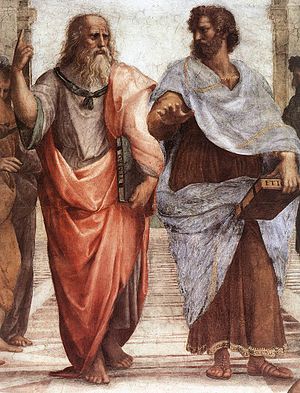Aristotle tells us about courage in the Nicomachean Ethics. But he doesn’t make it easy for us. He creeps up on courage by first talking about bravery. And then once we get to courage, there are two dimensions he makes us explore. The first is that the act itself is unrelated to its motivation and therefore we can’t characterize it as brave or courageous in itself. Courage is not in the act but the reason for the act. The second is in popular speech it is the acts that are defined as brave when they may actually be something else when we examine the motive behind them so we are conditioned to regard acts as courageous without understanding the reason for the action. All this makes bravery a difficult concept to characterize because bravery is conditional. We can’t easily determine bravery just from the action. Bravery must come from the right motives. And what are the right motives?
The man, then, who faces and who fears the right things and from the right motive, in the right way and from the right time, and who feels confidence under the corresponding conditions, is brave; (Bk3,Ch7)
This complicates things. We can’t just observe an action and know that it represents bravery. We have to know the character and the motives of the actor. How are we to know these things? They aren’t necessarily revealed in the action. But they do reveal themselves over time in other activities. And of course to decide whether an act directed from bravery we have to understand the characteristics that correspond to the right way and the right time. But what is the right way and the right time?
The answer is what Aristotle calls ‘noble’ which doesn’t exactly simplify things because it is a way of seeing things and acting on them not a set of rules. (See some more about Aristotle’s view of noble here)
Courage is something that we observe in people we regard as brave. Here again we have the problem of the act itself and the reason behind the act. The same act might appear as either courageous or foolish. The difference is in the character and intent of the person committing the act.
People act in correspondence to their character. Courage, Aristotle tells us is noble, and
Therefore it is for a noble end that the brave man endures and acts as courage directs. (Bk3, Ch7)
In Book 8, he describes other types of action which are called courage in popular speech. They are
-
The citizen-soldier – people who face dangers because of the penalties imposed by the laws and the reproaches they would otherwise incur, and because of the honors they win
-
Experience – people whose experience makes them confident and assured in situations that would cause fear in less experienced men.
-
Passion – people who’s actions stem from emotions that override judgment
-
Sanguine – People who’s optimistic nature makes them confident of victory regardless of reality
-
Ignorance – People who undertake actions in ignorance of the risks
In each of these circumstances, the actions may be similar but the reason for the action is very different and keep them from being called courageous by Aristotle.
In each of these examples, the same action could happen. Popular opinion might regard all the actions as courageous. They are not courageous to Aristotle because the reason for the action is not noble.

